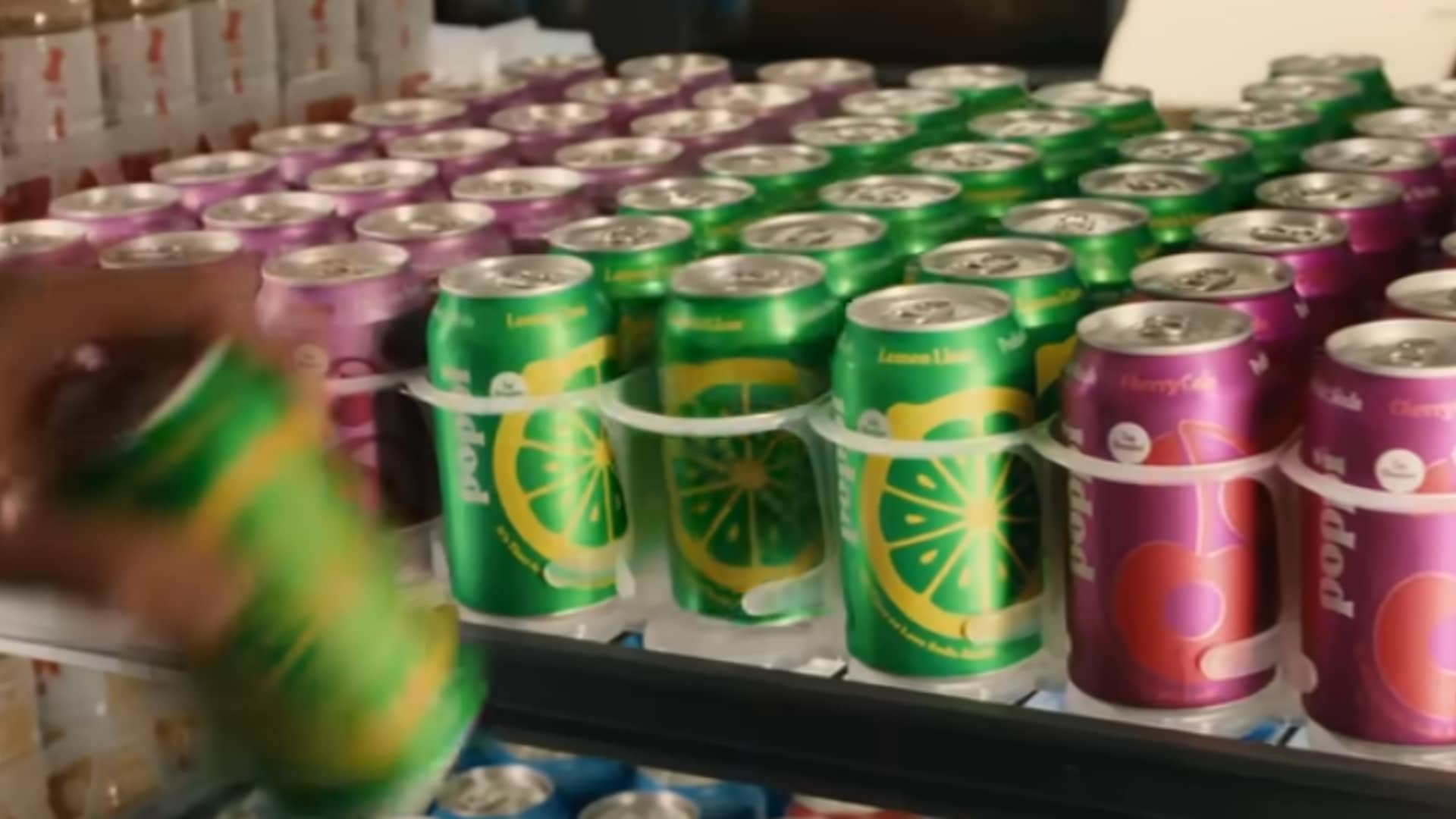
Olipop’s Super Bowl Advertisement
Image Source: Olipop
On Wednesday, the prebiotic soda brand Olipop announced that it has reached a valuation of $1.85 billion following its recent funding round, which successfully raised $50 million.
Established in 2018, Olipop has been a driving force in the prebiotic soda market, competing closely with brands like Poppi, which showcased its beverages with a Super Bowl advertisement last Sunday. Both brands have captured consumer interest by promoting their beverages as beneficial for “gut health,” aligning with the growing wellness trend dominating the food and beverage industry.
The Series C funding round for Olipop was spearheaded by J.P. Morgan Private Capital’s Growth Equity Partners. The company intends to utilize the funds to broaden its product offerings, enhance marketing efforts, and increase distribution of its soda products.
Currently, Olipop holds the position of the leading non-alcoholic beverage brand in the U.S. in terms of dollar sales and unit growth, as reported by the company based on data from Circana/SPINS. Approximately 50% of Olipop’s growth is driven by former soda consumers, with the other half coming from new entrants to the carbonated drink sector. Remarkably, one-quarter of Gen Z individuals are now drinking Olipop, according to the company.
As of early 2024, Olipop has reported reaching profitability with annual sales exceeding $400 million last year, a figure that doubled compared to the previous year. In 2023, Olipop’s founder and CEO, Ben Goodwin, stated to CNBC that major soda corporations like PepsiCo and Coca-Cola had shown interest in a potential acquisition.
On the other hand, Poppi, founded a decade ago, has raised $39.3 million in 2023 at an undisclosed valuation, based on Pitchbook data. The company’s annual sales reportedly surpassed $100 million this past year. This latest Super Bowl appearance marks the second consecutive year Poppi has invested in advertising during the highly anticipated event.
However, Poppi has encountered some criticism regarding its health assertions. The company is currently negotiating a settlement for a lawsuit alleging that its products may not be as healthy as advertised, as outlined in recent court documents.









